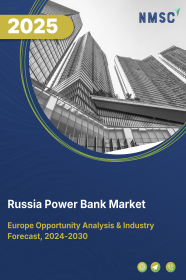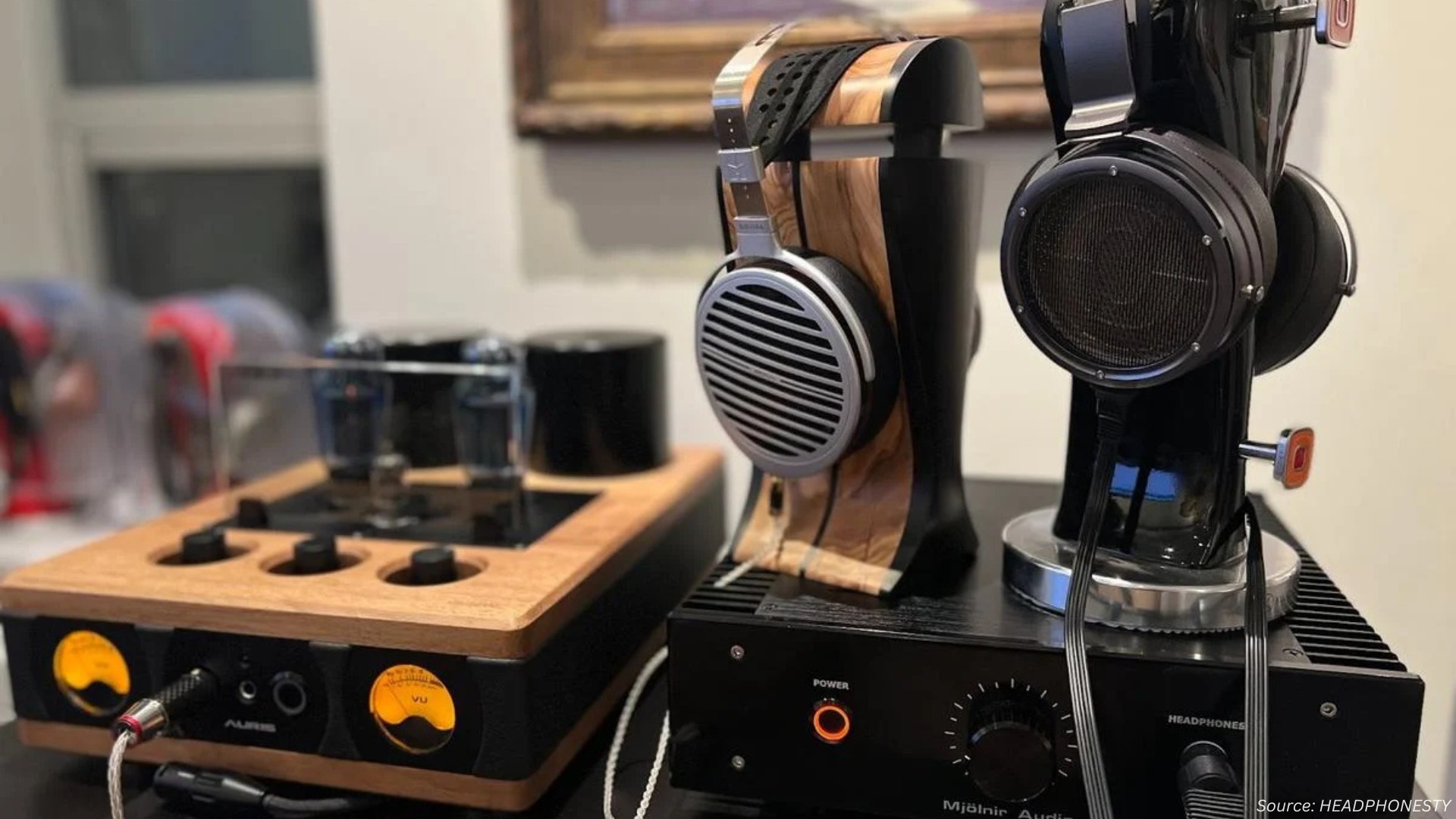
Russia Power Bank Market by Battery Capacity (Upto 5000 mAh, 5001-10000 mAh, 10001-20000 mAh, and Above 20000 mAh), by Battery Type (Lithium-ion (Li-ion), and Lithium-Polymer (Li-Po)), by Portability (Mini Power Banks, Compact Power Banks, and Larger High Capacity Power Banks), by Charging Technology Type (MagSafe or Wireless Charging Support and Standard Charging Support), and Others – Global Opportunity Analysis and Industry Forecast, 2024 – 2030
Industry: Retail and Consumer | Publish Date: 06-Aug-2025 | No of Pages: 182 | No. of Tables: 144 | No. of Figures: 101 | Format: PDF | Report Code : RC1488
Market Definition
Russia Power Bank Market size was valued at USD 102.20 million in 2023, and is predicted to reach USD 129.55 million by 2030, with a CAGR of 3.0% from 2024 to 2030.
The power bank industry is dedicated to designing, manufacturing, and distributing portable charging devices. These devices, typically equipped with lithium-ion or lithium-polymer batteries, are engineered to store electrical energy and provide on-the-go charging for many portable electronic devices such as smartphones, tablets, digital cameras, and laptops. The industry has evolved rapidly, responding to the increasing reliance on mobile devices and the consequent need for portable power solutions.
The advantages of power banks are numerous and significant. Their primary benefit lies in their portability, allowing users to charge electronic devices without a stationary power source. This feature mainly benefits people who travel frequently or engage in outdoor activities. Moreover, power banks are designed to be compact and lightweight, enhancing their convenience.
Additionally, modern power banks are available in various capacities, enabling them to store enough energy to charge multiple devices or provide several charges to a single device, which is especially useful during extended periods away from traditional power sources. However, the environmental impact of these devices, particularly the production and disposal of lithium batteries, is a concern, necessitating proper recycling and disposal methods to minimize their ecological footprint.
Expanding Mobile Ecosystem and 5G Rollout Driving Power Backup Demand
The rollout of 5G networks in Russia and the proliferation of power-hungry applications—ranging from augmented reality (AR) and mobile gaming to high-definition streaming—have amplified the need for constant device usage and faster connectivity. This has placed additional strain on smartphone batteries, particularly among urban users and digital-first consumers. As the mobile ecosystem evolves with increased multitasking and high data consumption, power banks have become indispensable daily tools. The growing popularity of devices supporting fast charging and Type-C PD compatibility further encourages consumers to invest in high-efficiency, future-ready portable charging solutions.
Increasing Demand from Outdoor, Travel, and Emergency-usage Segments
Russia’s widespread geography and increasing interest in outdoor travel, regional tourism, and mobile-first lifestyles have led to a sharp rise in power bank adoption. Devices are often needed during long journeys, harsh winters, or in remote areas with limited electricity infrastructure—particularly in the Far East and Siberian regions. Additionally, emergency preparedness during natural disruptions or blackouts has prompted consumers to invest in rugged, high-capacity models. This trend is especially prominent among logistics workers, delivery agents, and remote professionals, driving continuous demand for portable, reliable power sources that support prolonged off-grid usage.
Dependency on Imported Battery Components Limiting Local Competitiveness
Despite government support for electronics manufacturing, Russia’s power bank sector still heavily relies on imported lithium-ion cells and semiconductor components from China, South Korea, and Taiwan. This dependency exposes the market to currency fluctuations, cross-border supply chain disruptions, and import tariffs. As geopolitical uncertainties persist, local manufacturers face challenges in pricing competitiveness, inventory management, and timely innovation. Without a strong domestic battery supply chain or localized R&D, scaling sustainable production and reducing consumer costs remains a significant restraint in achieving long-term market resilience.
Government-backed Local Manufacturing Push to Unlock New Growth Channels
The Russian government's increased emphasis on self-reliance in technology and electronics—particularly under the national "Digital Economy" and import substitution policies—is opening new opportunities for local assembly and innovation in the power bank market. Tax incentives, grants, and favorable regulations are encouraging domestic players to invest in lithium battery production and PCB manufacturing. This push not only reduces dependency on imports but also creates room for customized, affordable, and region-specific product development. As localization gathers pace, new entrants and startups have the chance to address demand from underserved rural markets while boosting Russia’s technological sovereignty in consumer electronics.
Competitive Landscape
The Russia power bank industry includes several market players such as Veolia Thailand, Suez (Thailand), Better World Green (BWG), WHA Utilities and Power (WHAUP), Wongpanit Waste Separation, Envicco Limited, Waste Management Siam, General Environmental Conservation Public Company Limited (GENCO), Indorama Polyester Industries (Indorama Ventures), SK Tes, RecyGlo Company Pte. Ltd., and Trash Lucky.
Russia Power Bank Market Key Segments
By Battery Capacity
-
Up to 5,000 mAh
-
5,001 to 10,000 mAh
-
10,001 to 20,000 mAh
-
Above 20,000 mAh
By Battery Type
-
Lithium-Ion (Li-Ion)
-
Lithium-Polymer (Li-Po)
By Portability
-
Mini Power Banks
-
Compact Power Banks
-
Large High-Capacity Power Banks
By Charging Technology Type
-
Magsafe or Wireless Charging Support
-
Standard Charging Support
By Number of Ports
-
1 to 2 Ports
-
3 to 5 Ports
-
More than 5 ports
By Design
-
Standard Power Banks
-
Rugged Power Banks
By Display Technology
-
Power Banks with Display Technology
-
Power Banks without Display Technology
By Compatibility
-
Universal Power Banks
-
Device-Specific Power Banks
By Power Output
-
Less than 15W
-
15-65W
-
66 to 200W
-
More than 200W
By Distribution Channel
-
Ecommerce or Online
-
Offline
Key Players
-
Veolia Thailand
-
Suez (Thailand)
-
Better World Green (BWG)
-
WHA Utilities and Power (WHAUP)
-
Wongpanit Waste Separation
-
Envicco Limited
-
Waste Management Siam
-
General Environmental Conservation Public Company Limited (GENCO)
-
Indorama Polyester Industries (Indorama Ventures)
-
SK Tes
-
RecyGlo Company Pte. Ltd.
-
Trash Lucky
REPORT SCOPE AND SEGMENTATION:
|
Parameters |
Details |
|
Market Size in 2023 |
USD 102.20 Million |
|
Revenue Forecast in 2030 |
USD 129.55 Million |
|
Growth Rate |
CAGR of 3.0% from 2024 to 2030 |
|
Analysis Period |
2023–2030 |
|
Base Year Considered |
2023 |
|
Forecast Period |
2024–2030 |
|
Market Size Estimation |
Million (USD) |
|
Growth Factors |
|
|
Companies Profiled |
12 |
|
Market Share |
Available for 10 companies |
|
Customization Scope |
Free customization (equivalent up to 80 working hours of analysts) after purchase. Addition or alteration to country, regional, and segment scope. |
|
Pricing and Purchase Options |
Avail customized purchase options to meet your exact research needs |




















 Speak to Our Analyst
Speak to Our Analyst

























